In the vein of art education and to gain an appreciation of the artists’ undertaking, we’d like to share with you the works of six contemporary printmakers. Printmaking has many techniques, and is often misunderstood. Let’s illuminate the different methods! Watch the demonstration from Paula Schuette Kraemer, and see the differences in style demonstrated by our artists below.
Paula’s works are predominantly drypoint monoprints and monotypes. Her expressive style is reflected in the immediacy and spontaneity of drawing directly into a copper plate using a steel etching needle. During the printing process, ink is intentionally left on the plate so that she can freely wipe, smear and draw into that residual ink. This is what qualifies these artworks as drypoint monoprints and monotypes. More prints by Paula
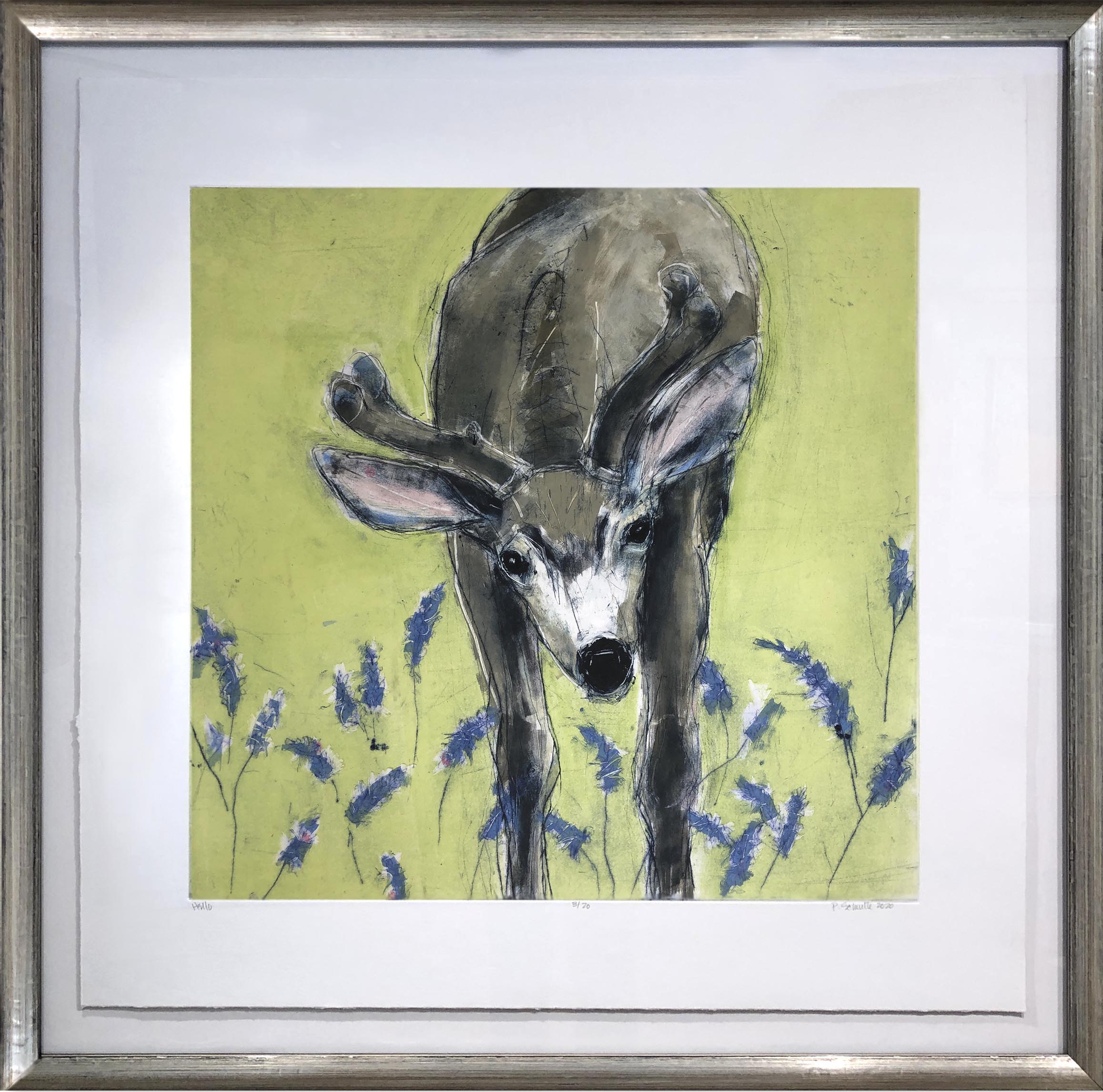
Monoprint
A type of print — usually unique — created by altering the surface of an existing etched plate by adding more ink to it. Edgar Degas is one of the most notable artist to experiment extensively with the monoprint.
Lloyd Schermer’s art career began decades before he became an artist. As a newspaper publisher, the very material that would ultimately become his extraordinary sculptures and monotypes surrounded him. Schermer uses original wood blocks for his monoprints, which consist of kaleidoscope of color. More prints by Lloyd
Monotype
A unique print made by creating an image on a smooth surface, such as a glass sheet or a metal plate, with paint or ink, and then transferring it to paper.
Many of Joel Ostlind’s works are produced via copper plate etchings, depicting the full range of Western life, from Native American lodges to contemporary fly fishermen, telemark skiers and horses grazing under Wyoming skies. More work by Joel
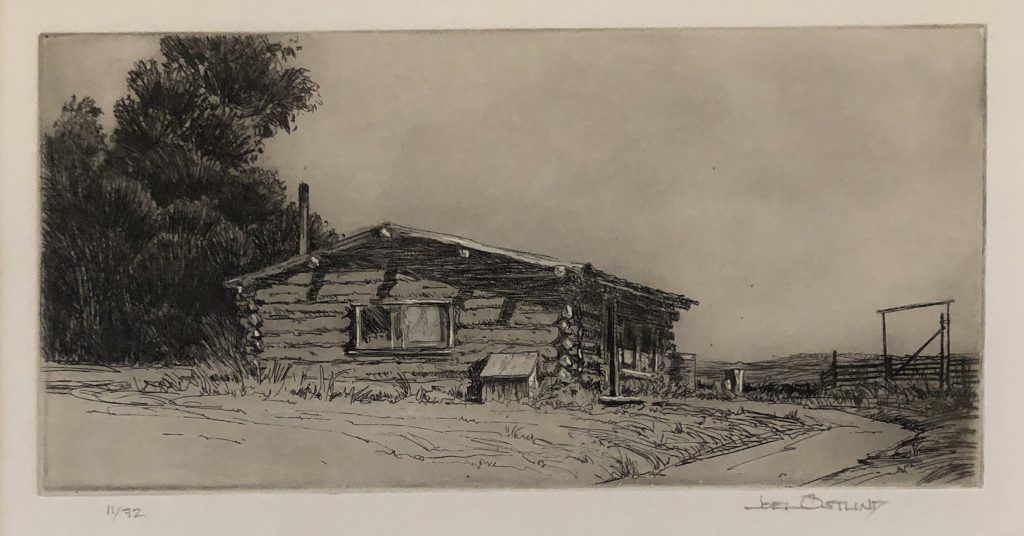
Etching
A print made by incising lines into a metal plate with a sharp tool called a burin. After the image is drawn, the plate is inked, wiped clean, and then firmly pressed to paper so the ink remaining in the incised grooves is transferred. Considerable force is required to mark the metal, so the lines made by engraving tend to be stronger than those made through etching, and characterized by gentle tapering. Light and shade have to be created through cross-hatching since the technique is line-based.
The subtle layering of color in the woodblock process allows Leon Loughridge to capture the atmospheric qualities of the Southwestern landscape. More prints by Leon
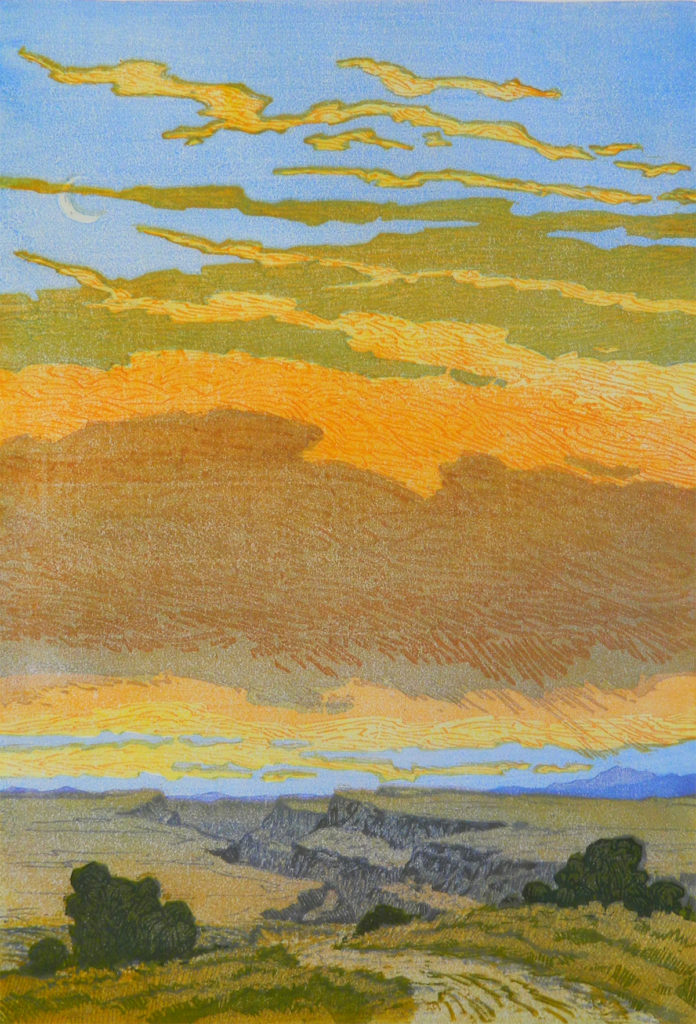
Woodblock
This type of relief print is made by carving a block of wood with a knife or gouge. The surface is then inked with a roller and the pressed onto paper. Unlike with intaglio techniques, the section of the surface that has not been incised is what appears in the print. It’s one of the oldest printing techniques, first used in 9th-century China, mastered by Dürer during the Northern Renaissance and famously associated with the ukiyo-e artists of 17th- and 18th-century Japan. German Expressionists like Emil Nolde and Ernst Ludwig Kirchner embraced the medium for its bold, graphic power in the 1920s, and artists continue to use it today.
Colorado printmaker Sherrie York has a reputation for lyrical and expressive works on paper. The beauty and mysteries she discovers on her walks inspire York’s nature-focused linocuts. Her printmaker’s eye is drawn to intricate flora, the behavior of birds, and patterns across land and seascapes. More prints by Sherrie
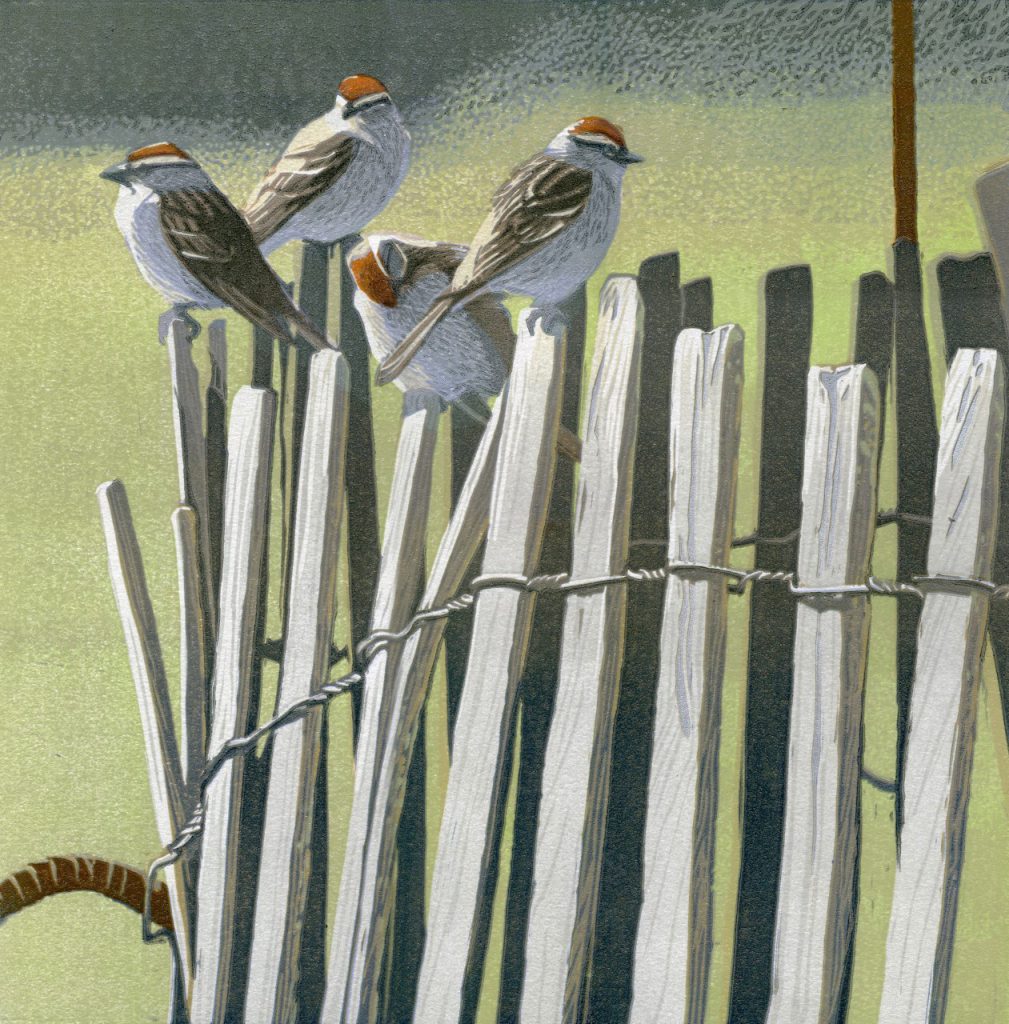
Linocut
Another type of relief print made by cutting away passages on a linoleum sheet mounted on a block. Since linoleum doesn’t have a grain, like wood, a linocut tends to produce a less textured print than a woodcut. Picasso explored the technique in the 1950s and ’60s and created some intense images.
Tomás Lasansky was born in Iowa City, IA, where he lives with his family. The Lasansky name is well known in the art world, both for their prolific oeuvres — Tomás alone has created over 2000 works — and the number of artists in the family. The youngest of six children and the son of the internationally renowned printmaker Mauricio Lasansky, Tomás lived a creative childhood surrounded by a family that celebrated every facet of the arts. His creative upbringing led to years of classical fine art training in the Old World tradition, empowering Lasansky to do justice to his New World subjects. Tomás now creates his works of art in the 10,500 square foot Lasansky Gallery & Studio, a combined gallery and studio for printmaking and painting.
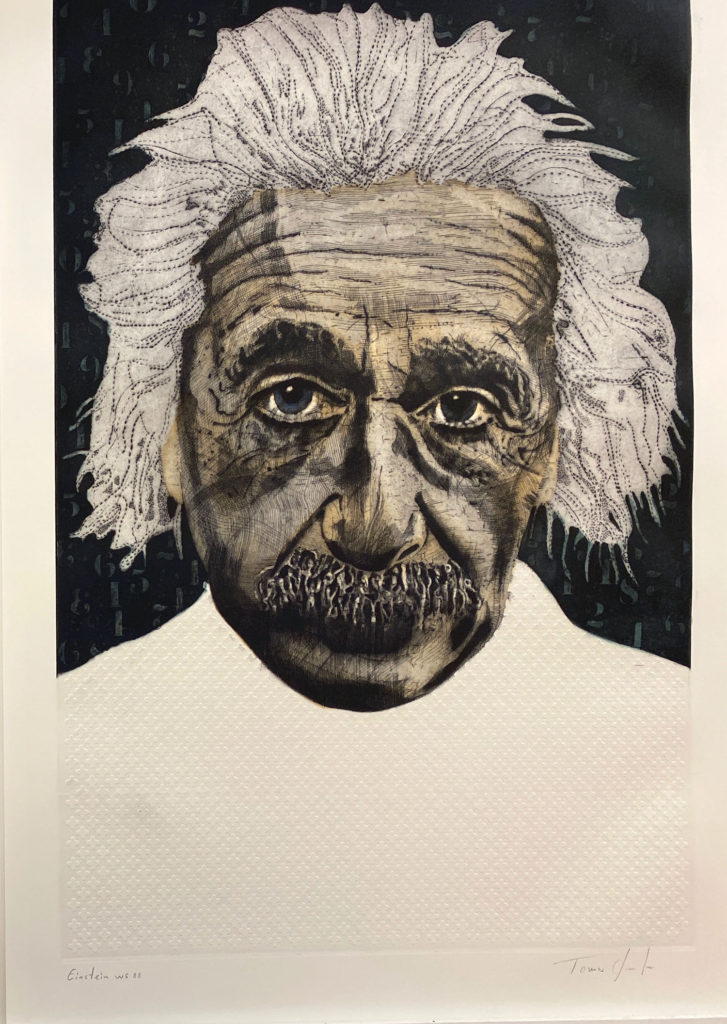
Intaglio
This type of relief print is made by carving a block of wood with a knife or gouge. The surface is then inked with a roller and the pressed onto paper. Unlike with intaglio techniques, the section of the surface that has not been incised is what appears in the print. It’s one of the oldest printing techniques, first used in 9th-century China, mastered by Dürer during the Northern Renaissance and famously associated with the ukiyo-e artists of 17th- and 18th-century Japan. German Expressionists like Emil Nolde and Ernst Ludwig Kirchner embraced the medium for its bold, graphic power in the 1920s, and artists continue to use it today.
If you’re looking for more, The Definitive Guide to Printmaking Techniques by 1st Dibs wonderfully explains the printing techniques you love to feast your eyes on.